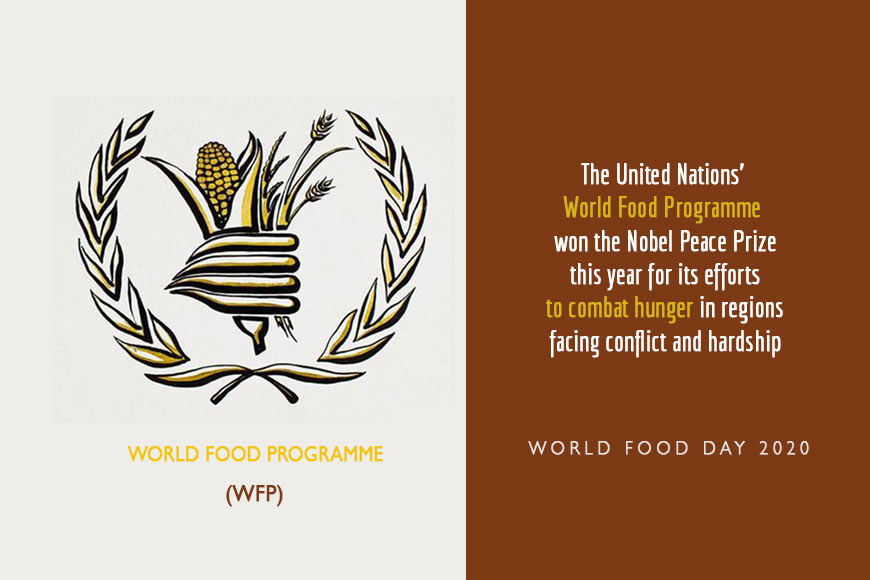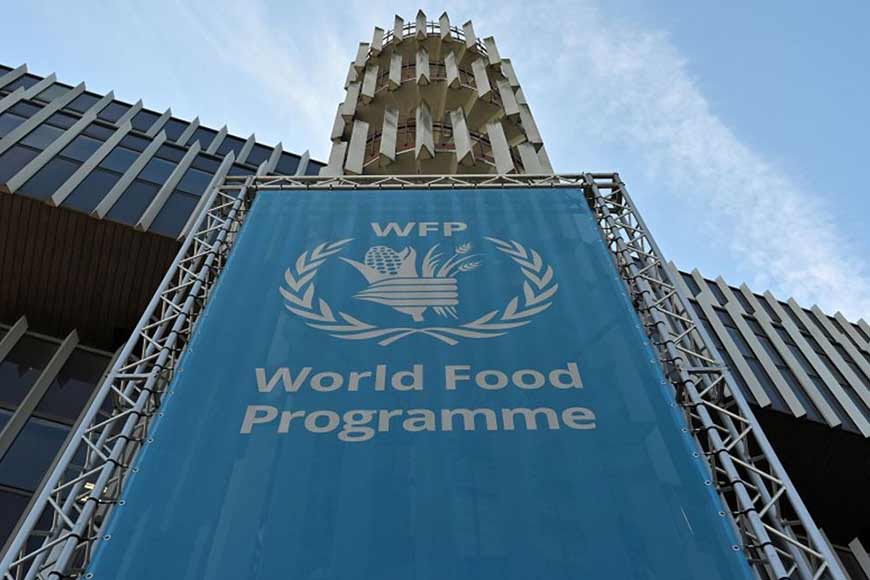On World Food Day, a look at World’s Food Programme that got Nobel Peace Prize 2020

The United Nations’ World Food Programme won the Nobel Peace Prize this year for its efforts to combat hunger in regions facing conflict and hardship and at a time when the coronavirus pandemic has driven millions more people to the brink of starvation. The Rome-based United Nations agency has long specialized in getting assistance to some of the world’s most dangerous and precarious places, from air-dropping food in South Sudan and Syria to creating an emergency delivery service that kept aid flowing even as antivirus restrictions grounded commercial flights.
It provided assistance to almost 100 million people in 88 countries last year.
“With this year’s award, the (committee) wishes to turn the eyes of the world to the millions of people who suffer from or face the threat of hunger,” said Berit Reiss-Andersen, the chair of the Norwegian Nobel Committee, announcing the award in Oslo. “The World Food Programme plays a key role in multilateral cooperation on making food security an instrument of peace.”
In honoring the U.N. food Programme, the Nobel peace committee was highlighting the need for global solidarity and multilateralism at a time of increasing polarization and go-it-alone nationalism. The head of the organization said his entire team deserved the award.

“I know I’m not deserving of an award like this, but all the men and women around the world in the World Food Programme and our partners who put their lives on the line every day,” David Beasley told The Associated Press. WFP staffers in Niger greeted Beasley with cheers and applause as he emerged to address a crowd after the announcement. “Two things,” he told them. “I can’t believe I’m in Niger when we got the award, and No. 2, I didn’t win it, you won it.”
The Nobel Committee said that the problem of hunger has again become more acute in recent years, not least because the pandemic has added to the hardship already faced by millions of people around the world. “In 2019, 135 million people suffered from acute hunger, the highest number in many years,” it said. “Most of the increase was caused by war and armed conflict. The coronavirus pandemic has contributed to a strong upsurge in the number of victims of hunger in the world.”
Also read : How Bengal is reviving lost varieties of paddy
In total, WFP estimates that 690 million people suffer some form of hunger in the world today. “In a world of plenty, it is unconscionable that hundreds of millions go to bed each night hungry,” he said. “Millions more are now on the precipice of famine due to the COVID-19 pandemic.” The Nobel Committee called on governments to ensure that WFP and other aid organizations receive the financial support necessary to feed millions in countries such as Yemen, Congo, Nigeria, South Sudan and Burkina Faso.
A logistics juggernaut, WFP this year created a global emergency delivery service for humanitarian aid. Officials said the unprecedented effort involved nearly 130 countries and was key in ensuring that aid for the pandemic kept flowing in addition to other assistance, like the drugs and vaccines needed to combat other diseases. Its success was even more marked in a world where commercial air travel nearly ground to a halt.
The award comes with a gold medal and a 10-milion krona ($1.1 million) cash prize that is dwarfed by the funding that WFP requires for its work. So far in 2020, the organization has received almost $6.4 billion in cash or goods, with more than a third, over $2.7 billion, coming from the United States. Beasley’s trip to Niger, where he has been meeting with leaders and visiting villages in the field, follows a three-day visit to neighboring Burkina Faso.









